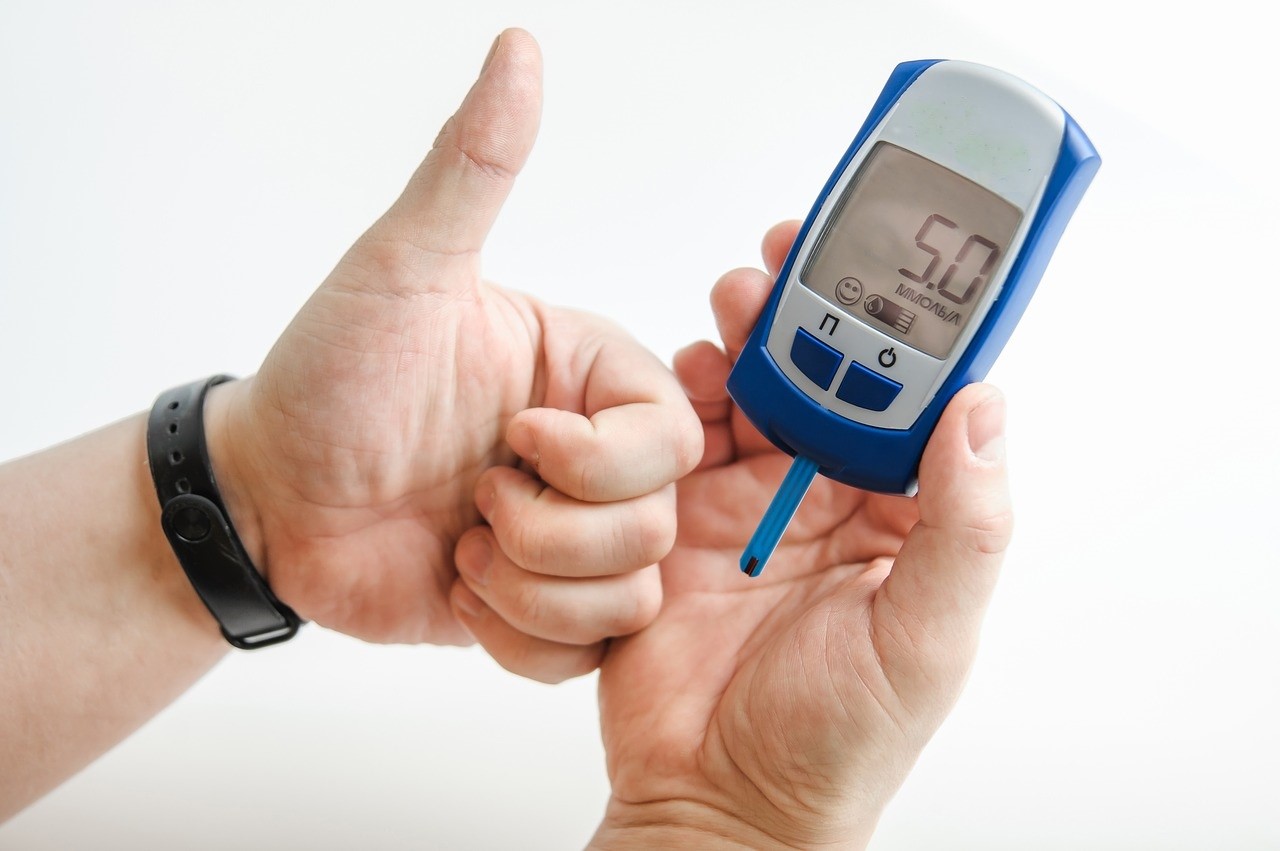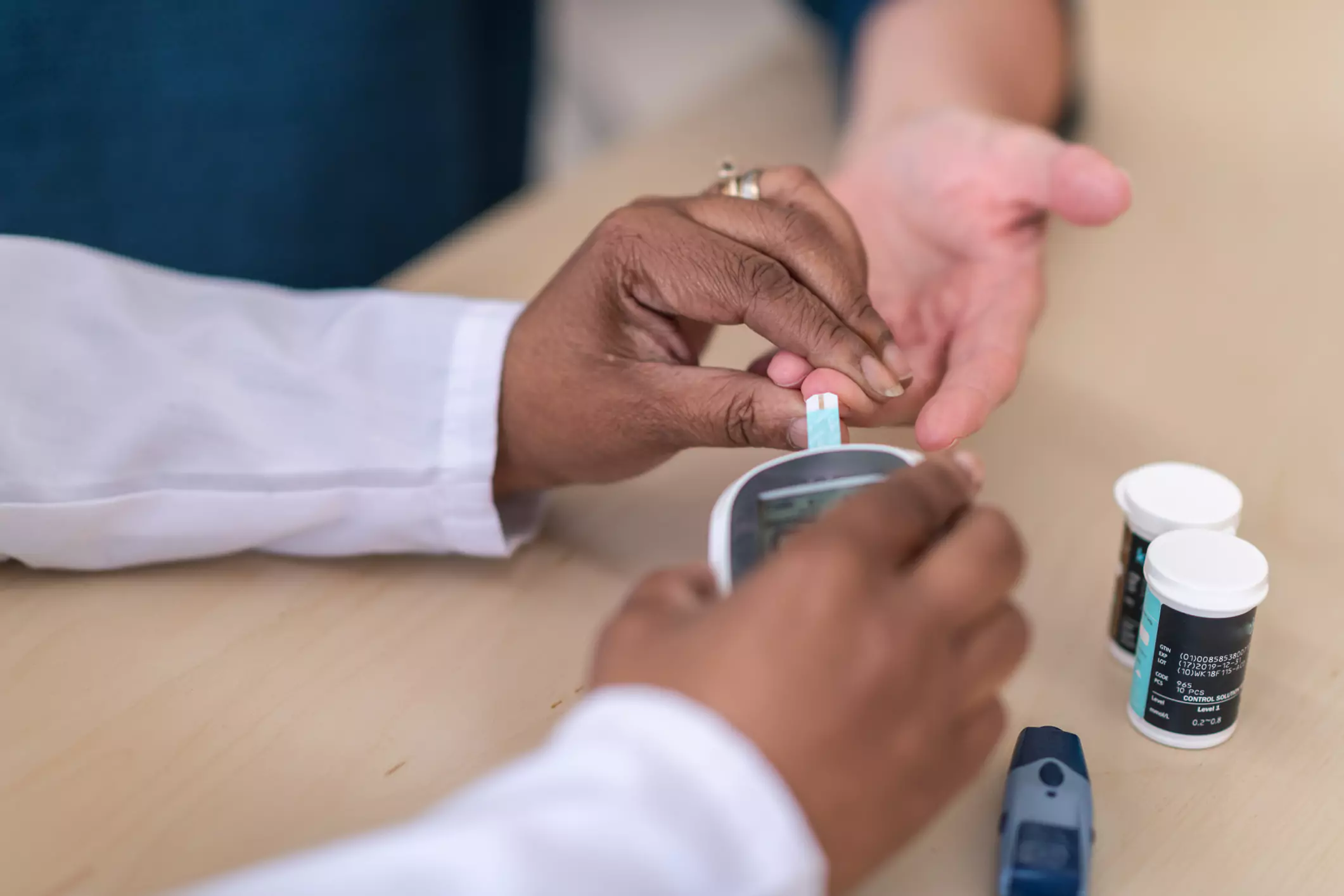
UP TO 40% OFF SITEWIDE






Taking Control of Diabetes as You Age: Expert Advice for Seniors


Table of Contents
- Risk Factors of Diabetes in Seniors
- Diabetes Symptoms in Seniors
- Increased Urination
- Excessive Thirst
- Blurred Vision
- Weight Loss
- Slow Healing
- Numbness and Tingling
- Managing Diabetes at Home
- Seeking Professional Help
- Management of Diabetes: Exercise, Diet, and Blood Sugar Monitoring
- Blood Sugar Surveillance
- Dental Care
- Mental and Emotional Wellbeing
- Conclusion
- About The Author
Diabetes, a chronic health condition that afflicts millions globally, poses a significant risk to older adults. As reported by the World Health Organization, approximately 425 million individuals aged 65 and above are living with diabetes, a figure anticipated to double by 2045.
However, the tides can be turned through appropriate education, lifestyle modifications, and healthcare, empowering seniors to manage their diabetes, leading to a healthier and more autonomous lifestyle. This article offers expert insights for older adults with diabetes.
It will delve into understanding diabetes and its associated risk factors, recognizing diabetes symptoms in seniors, managing diabetes domestically, the importance of professional intervention, diet, and physical activity, blood sugar tracking, dental health, along with mental and emotional support.
Risk Factors of Diabetes in Seniors
With advancing age, susceptibility to specific ailments and conditions, including diabetes, escalates. A formidable threat to senior health, diabetes interferes with the body's glucose processing mechanism, potentially leading to grave health complications if not properly managed. Multiple factors can heighten the risk of diabetes onset with age.
A critical determinant is genetics; those with a familial history of diabetes stand a higher chance of acquiring the condition. In addition, a sedentary lifestyle and physical inactivity can amplify this risk. As we age, maintaining an active routine is vital, helping to manage a healthy weight, a crucial step in mitigating diabetes risk. Furthermore, unhealthy dietary habits can exacerbate the risk of diabetes.
As we mature, it's paramount to adhere to a balanced diet, limiting saturated fats, trans fats, cholesterol, salt, and added sugars. Such dietary practices can maintain optimum blood sugar levels and curtail diabetes risk. Lastly, specific medications, including steroids, can potentially enhance diabetes risk.
It's critical for seniors to engage in open conversations with their healthcare provider about their medication regimen and possible side effects.
It's essential for seniors to be cognizant of these risk factors and strive to mitigate them. By adopting healthy lifestyle modifications and prioritizing regular health check-ups, seniors can effectively manage their diabetes and lower the risk of complications.
Diabetes Symptoms in Seniors
As individuals age, the risk of diabetes grows. Hence, it's critical for seniors to recognize diabetes symptoms, facilitating immediate action upon observing any warning signs.
Increased Urination
Frequent urination, a common diabetes symptom, occurs as the body endeavours to eliminate surplus sugar from the bloodstream. This symptom often accompanies feelings of thirst and fatigue.
Excessive Thirst
Increased urination and thirst often occur simultaneously, as the body strives to restore the fluids lost due to frequent urination. Consequently, seniors with diabetes may experience intense thirst, persisting despite significant fluid intake.
Blurred Vision
Elevated blood sugar levels can cause the eye's lens to swell, leading to blurred vision due to the pressure exerted on the eye's minute blood vessels.
Weight Loss
Unintentional and rapid weight loss is common in seniors with diabetes, as their bodies fail to convert glucose into energy. This symptom may accompany other symptoms, including fatigue and nausea.
Slow Healing
High blood sugar levels can impair the body's healing ability, leading to extended healing times for minor injuries and an increased risk of infection.
Numbness and Tingling
Elevated blood sugar levels can lead to nerve damage, resulting in numbness and tingling sensations in the extremities due to impaired signal transmission.
Should seniors observe any of these symptoms, they must seek medical help promptly. Early diagnosis and treatment of diabetes enable seniors to manage their condition effectively, minimizing the risk of severe complications.
Managing Diabetes at Home
For the elderly, home-based diabetes management can pose significant challenges. The imperative to maintain balanced glucose levels often demands significant lifestyle modifications, which can be especially daunting for seniors. As such, it's vital to keep abreast of the most effective strategies to manage diabetes as one grows older.
Initiating effective home-based diabetes management begins with adhering to a consistent meal schedule. This requires the consumption of nutritious meals and snacks at regular intervals throughout the day. Consistent meal times aid in maintaining stable blood glucose levels and minimizing the risk of severe hypoglycemic episodes.
Ensuring that all meals and snacks include nutritious, low-calorie food items is also crucial. Complementing a regular meal plan with physical activity is equally essential. Even minimal exercise can help regulate and control blood glucose levels.
Plus, it can enhance overall health, mitigating the risk of diabetes-associated complications like heart disease, stroke, and more. Seniors are encouraged to aim for a minimum of 30 minutes of exercise daily.
It's also vital for seniors to regularly monitor their blood glucose levels. Regular checks allow for necessary adjustments in diet, exercise, and medication, optimizing diabetes control.
Noting down blood sugar readings and any alterations in diet or exercise is helpful in tracking levels and making necessary modifications. Moreover, seniors must adhere strictly to prescribed medication regimens.
Skipping doses or altering dosages without professional consultation is ill-advised. As prescription medicines might interact with over-the-counter drugs, vitamins, and supplements, any new medication should only be taken after consultation with a doctor. By adhering to these strategies, seniors can assert control over their diabetes and enhance their health.
By maintaining a regular diet, engaging in physical activity, consistently monitoring glucose levels, and adhering to prescribed medications, seniors can reduce the risk of severe hypoglycemic episodes and other diabetes-associated complications. With the right lifestyle modifications and professional health care support, optimal diabetes control is achievable for seniors.
Seeking Professional Help
Professional healthcare intervention is crucial when managing diabetes. Healthcare providers can offer expert advice and help formulate a personalized diabetes management plan. Regular consultations with healthcare professionals are necessary for seniors with diabetes to discuss any changes in their condition and receive updated management advice. Visits to healthcare professionals should be well-prepared, with a list of pertinent questions.
These might include queries about their existing diabetes management plan, required dietary modifications, medication types, and lifestyle alterations to better manage their diabetes. Discussing potential risks of developing diabetes-related complications like stroke, heart disease, and nerve damage is also crucial. Seniors must be proactive in seeking answers to their questions and understanding the advice given by healthcare professionals.
Asking questions to clarify any confusing advice is important, as is ensuring that the healthcare professional is fully aware of the individual's medical history and specific needs. Healthcare providers can also offer valuable resources to assist seniors in managing their diabetes.
Such resources might include information about healthy foods, meal plans, physical activity, and diabetes medications. Providers can also provide details about support groups, diabetes education classes, and other resources. It's crucial to understand that diabetes management isn't a one-size-fits-all process.
An individual's management plan will depend on factors like age, health history, lifestyle, and overall health. By collaborating with a healthcare provider, seniors can develop a comprehensive plan to manage their diabetes and take control of their health.
Management of Diabetes: Exercise, Diet, and Blood Sugar Monitoring
Diabetes management is a comprehensive process, crucial across all age groups, but its significance amplifies with advancing age. Within this framework, regular physical activity and balanced nutrition are pivotal. Exercise aids in blood sugar regulation and weight control, two fundamental aspects of managing diabetes.
For elderly individuals with diabetes, the emphasis should be on low-impact, safe exercises that align with their unique health conditions. Practices such as walking, swimming, or light resistance training can effectively regulate blood glucose levels without exerting excessive stress on the body. Additionally, hydration before, during, and after exercise is paramount to maintain overall health.
Nutrition-wise, a diet rich in fiber, low in fat, and abundant in whole grains, fresh fruits, and vegetables is ideal for seniors living with diabetes. It's necessary to watch portion sizes, limit processed food consumption, and moderate intake of sugary snacks. Tailoring a diet plan to individual requirements with a healthcare professional's help is recommended.
Incorporating whole grains and plant-based proteins, like beans, lentils, and tofu, is beneficial as they offer healthy carbohydrates, fiber, essential nutrients, and vitamins. Limiting consumption of red and processed meats, saturated fats, and added sugars is equally vital.
Furthermore, adding healthy fats, such as those in avocados, nuts, and fatty fish, into their meals can help improve blood glucose control and diminish inflammation. However, this should be under the guidance of a healthcare professional to ensure a suitable dietary plan.
Blood Sugar Surveillance
Regular blood sugar monitoring is crucial for older adults managing diabetes. It helps to modify diet, exercise routines, and other lifestyle factors accurately. Inadequate monitoring could lead to severe health complications, including kidney and cardiovascular diseases. Understanding blood sugar metrics is a must.
The American Diabetes Association (ADA) suggests that a fasting blood sugar level ranging from 70-130 mg/dL is within normal limits. Any levels below 70 mg/dL indicate hypoglycemia, whereas anything above 130 mg/dL signals hyperglycemia. Home monitoring devices offer a convenient way to track blood sugar levels. However, it's crucial to calibrate these devices with blood tests to ensure accuracy.
Seniors should also consider their recent meals and activity levels while interpreting these readings. Control your diabetes by maintaining a blood sugar log. It helps ensure levels stay within the recommended range and reveals how lifestyle changes impact health over time.
Seniors should be vigilant about sudden blood sugar fluctuations and seek medical attention promptly if such changes occur. Regular blood sugar monitoring allows seniors to manage diabetes effectively. It's important to remember that blood sugar responses can vary among individuals, so finding a personalized strategy for monitoring and managing these levels is key.
Dental Care
For older individuals with diabetes, meticulous dental care is crucial in the overall management of their condition. Diabetes, by nature, can cause harm to blood vessels, resulting in prolonged healing processes and heightened susceptibility to infections. Furthermore, fighting off bacterial and fungal infections becomes a more challenging task for diabetics, thus maintaining gum health becomes arduous.
The initial phase of preserving oral health involves creating a consistent dental regimen. This routine encompasses brushing teeth twice daily for a duration of two minutes each, daily flossing, and using fluoride toothpaste. Regular dental check-ups, ideally annually, for a comprehensive examination, cleaning, and detection of potential oral health issues are equally essential.
For diabetic seniors, the importance of maintaining optimal oral health cannot be overstated. Neglect of dental hygiene can spiral into periodontal disease, an inflammatory condition of the gums characterized by redness and swelling. This disease can further compound the difficulty of blood sugar regulation in seniors, potentially leading to additional complications. However, oral care extends beyond regular brushing and flossing.
A balanced diet plays a vital role. Consuming a diverse array of fruits, vegetables, whole grains, and lean proteins contributes to robust teeth and gums. Limiting intake of sugary and acidic foods and beverages, which could potentially harm oral health, is also advised. Moreover, steering clear from smoking and alcohol is paramount.
Smoking can have detrimental effects on the body's immune system, making it harder to ward off infections. It can also cause dry mouth, increasing the risk of decay. Similarly, alcohol can induce dry mouth and escalate the risk of gum disease.
For diabetic seniors, diligent dental care is indispensable in disease management. By establishing a regular dental routine, maintaining a balanced diet, reducing consumption of sugary and acidic foods, and avoiding smoking and alcohol, they can achieve healthier teeth and gums, and better control of their blood sugar levels.
Mental and Emotional Wellbeing
Diabetes and depression are linked together. The physical and emotional burden of diabetes can trigger stress and anxiety, making the disease management an uphill battle for seniors, who may already be dealing with age-related mental health concerns. Diabetes can cause mental health disturbances such as depression, anxiety, and diminished quality of life.
Recognizing these effects is crucial, as they can significantly impact overall health. Thus, developing coping mechanisms for the stress and anxiety associated with diabetes is important.
Building a robust support network is a viable strategy to manage the mental health implications of diabetes. This network can include friends, family, and other empathetic individuals, providing emotional support.
Support groups or online forums for those living with diabetes can also provide invaluable emotional assistance and mitigate feelings of isolation. In addition, stress and anxiety management techniques such as deep breathing and meditation can be beneficial for diabetic seniors.
Regular exercise can also help mitigate stress and enhance emotional wellbeing. Recognizing the symptoms of depression and seeking professional intervention when needed is crucial. Older individuals with diabetes must actively seek emotional support from family, friends, and healthcare professionals. By doing so, they can alleviate stress, improve their mental health, and manage their condition more effectively.
Conclusion
Navigating life with diabetes can be challenging, particularly for older individuals. However, with appropriate guidance and healthy lifestyle modifications, diabetic seniors can regain control over their condition and lead fulfilling lives. To start, seniors need to understand diabetes-associated risks, recognize the symptoms, and seek professional medical advice when required.
Practical measures to manage diabetes include regular monitoring of blood sugar levels, dietary and exercise modifications, and maintaining dental hygiene. Prioritizing mental health and seeking emotional support when needed is also vital.
Consistency is key in managing diabetes effectively with advancing age. Implementing minor, achievable lifestyle and dietary changes can help regulate glucose levels and boost overall health. It's beneficial to design a strategic plan outlining your goals and checkpoints. Collaboration with your doctor, dietitian, or health coach can facilitate the creation of a personalized plan suited to your specific needs.
In conclusion, taking the reins of your diabetes as you grow older is feasible. With proper guidance and determined practice, seniors can manage their diabetes effectively, leading to a healthy and fulfilling life. Through support from family, friends, and healthcare professionals, seniors can cultivate necessary coping strategies and skills to manage their diabetes and maintain their wellbeing.
About The Author
Meet Dr. Ahmet Ergin a highly skilled and dedicated endocrinologist with a passion for diabetes care. Dr. Ergin earned his medical degree with honors from Marmara University in Istanbul. He completed internal medicine residency and endocrinology fellowship at Cleveland Clinic.
Dr. Ergin is board-certified in Internal Medicine, Endocrinology, Diabetes, and Metabolism due to his vast medical expertise. He's a certified diabetes educator, author of "The Ultimate Diabetes Book," and founder of "the SugarMD YouTube channel."
Dr. Ergin offers exceptional diabetes care to his patients in Port Saint Lucie, FL, helping them manage effectively. Disclaimer: These statements have not been evaluated by the Food and Drug Administration. Information on this website isn’t intended to treat, cure or prevent any disease. Discuss with your doctor and do not self-treat.
Written By Dr. Ahmet Ergin
466 total articles
Meet Dr. Ahmet Ergin, a highly skilled and dedicated endocrinologist with a passion for diabetes care. Dr. Ergin earned his medical degree with honors from Marmara University in Istanbul. He completed internal medicine residency and endocrinology fellowship at Cleveland Clinic. Dr. Ergin is board-certified in Internal Medicine, Endocrinology, Diabetes, and Metabolism due to his vast medical expertise. He's a certified diabetes educator, author of “The Ultimate Diabetes Book,” and founder of “the SugarMD YouTube channel.” Dr. Ergin offers exceptional diabetes care to his patients in Port Saint Lucie, FL, helping them manage effectively. For a closer look into his insights and experiences, connect with Dr. Ahmet Ergin on LinkedIn, Instagram, and YouTube.”
Disclaimer: These statements have not been evaluated by the Food and Drug Administration. Information on this website isn't intended to treat, cure or prevent any disease. Discuss with your doctor and do not self-treat.
Products











